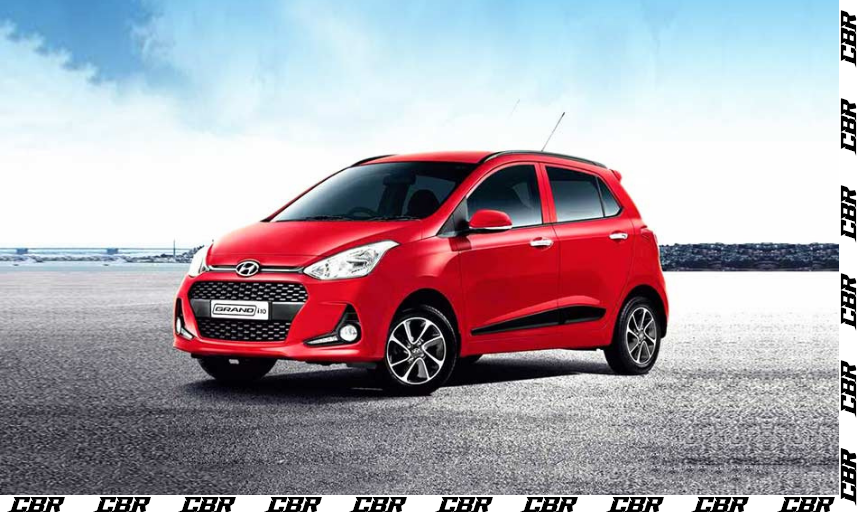As a middle-class employee living in the bustling city of Noida, it had become necessary to buy a car. The heavy traffic during office hours had made the daily commute quite stressful. Even getting an Ola or Uber was becoming difficult. The fluctuating fares often went beyond my affordable range. Long story short, I desperately needed a compact and reliable car. After considering several factors, I decided to go for the Hyundai Grand i10 NIOS. Let me walk you through the whole process that led to take the decision. I will also share my experience with driving in the car on a daily basis.
My Search for the Perfect Car
Though I was fixated on buying my own car, I had to take several things into consideration.
1. Parking Space
First of all – my parking space. I live in a high-rise gated community where all residents have been allotted a limited parking space. The space allotted to me was roughly around 19.5 feet by 8 feet. This helped me to narrow down my choices to the following variants:
- Hyundai i10
- Mauti Swift
- Maruti Wagon R
- Ford Figo
- Tata Tiago
Cars of the above dimensions were also perfect to navigate through the heavy traffic. I was sure any of these would help me easily weave through the congested streets.
2. Fuel Variant
Since I live in Delhi NCR, with frequent visits to the capital, diesel was not really an option. Though the diesel ban on cars has been recently lifted, it was still in effect when I was buying a car.
The next option to consider was an EV car. Though there were several EV charging stations being set up across the city, I wasn’t really sure about getting an EV car. Hence, I crossed out Tata Tiago’s EV car.
Petrol did seem like a good choice, but Grand i10 NIOS CNG dual cylinder caught my attention. The cylinder is divided into two tanks so that they fit snugly beneath the boot floor. This allowed a lot more storage area, which I did not see in most of the cars I had shortlisted. However, I was still battling between Grand i10 NIOS CNG and Tata Tiago’s i-CNG which offered similar features. Let’s have a look at their comparative cylinders:
| Dual Cylinder Feature | Grand i10 NIOS CNG | Tata Tiago’s i-CNG |
| Cylinder type | 1.2 litre four-cylinder engine | 1.2 litre three-cylinder engine |
| Horsepower | 69 hp | 73 hp |
| Torque | 95 Nm | 95 Nm |
| Gearbox | 5 speed manual gearbox | 5 speed AMT gearbox (provides an option of 5 speed manual gearbox) |
| CNG tank capacity | 60 litres | 60 litres |
| Fuel efficiency | 27.3 km/kg | 28.6 km/kg |
3. Initial Cost
Till now I had narrowed down my choices to Grand i10 NIOS or Tata Tiago. Next I proceeded to look into the on-road price of all the variants. Have a look at the Grand i10 NIOS price and Tata Tiago variants variants in the table below.
| Car | Variant | On-Road Price |
| Grand i10 NIOS | Petrol | INR 5.92 Lakhs to INR 8.56 Lakhs |
| CNG | INR 7.68 Lakhs to INR 8.3 Lakhs | |
| Tata Tiago | Petrol | INR 5.6 Lakhs to 7.9 Lakhs |
| CNG | INR 6.6 Lakhs to INR 8.9 Lakhs |
4. Maintenance Cost
While buying a car, you need to consider more than just the on-road price. I researched a bit and found out that CNG fuel is much cheaper than petrol. Moreover, CNG cars offer 25% more mileage compared to petrol cars.
However, it could be a little tricky to maintain them. For instance, I would have to get the tank inspected regularly. But the low CNG fuel prices were too attractive. They could easily cover the maintenance cost of the car.
5. Safety Features
Both Hyundai Grand i10 NIOS and Tata Tiago included seat belts and air bags for passenger and co-passenger. But it was the additional safety feature in Grand i10 NIOS that caught my eye. Unlike most cars, Grand i10 NIOS included 6 airbags. One each for the driver, co-driver, and on each of the four doors. This was a huge deal.
| Car | Seat Belts | Airbag for Driver | Airbag for Co-driver | Airbag on all 4 sides | Airbag on curtains |
| Grand i10 NIOS | Yes | Yes | Yes | Yes | Yes |
| Tata Tiago | Yes | Yes | Yes | – | – |
Ultimately I decided that Grand i10 NIOS CNG struck the right balance between my budget, safety, and convenience. I wanted a manual variant, and I had to make a choice from the following CNG variants:
| Grand i10 NIOS CNG Variant | Approximate Price |
| Magna 1.2 Kappa | INR 7.6 Lakhs |
| Magna 1.2 HY-CNG Duo | INR 7.7 Lakhs |
| Sportz 1.2 Kappa CNG | INR 8.2 Lakhs |
| Sportz 1.2 HY-CNG Duo | INR 8.3 Lakhs |
6. Buying the Car
After carefully considering my budget and paying a visit to the nearest Hyundai showroom, I finalised Magna 1.2 HY-CNG Duo car variant. It offered me a ton of features such as:
- 1.2L Bi-Fuel engine with the option to switch between petrol and CNG
- 5-speed manual unit
- Projector headlamps
- 8-inch touchscreen infotainment unit
- Rear AC vents
- Rear Parking Camera
- Day & Night IRVM
- ESP and Hill start assist
- Footwell lighting
- 6 airbags
- TPMS Highline
My Experience with Hyundai Grand i10 NIOS CNG
It has been a few months since I made the purchase. Driving the car every day to my office has offered a smooth experience. The engine is super smooth and the car gives a mileage of 27 km/kg. The seating has been quite comfortable both for me and all my family members. The gears shift smoothly, and every ride has been quite enjoyable. If you are someone like me who needs a compact yet spacious car, I would highly recommend Hyundai Grand i10 NIOS. It has proven to be a reliable companion both on the daily office commute and on fun trips with family and friends. It fits perfectly in premium parking spaces and allows me to navigate through the dense traffic of the metro city.
Also Read: Upcoming Cars and SUVs Arriving This Festive Season in India
FAQs
1. Which models are available for Hyundai i10 NIOS?
The Hyundai i10 NIOS is available in petrol, CNG, and dual variants. You can select from manual or automatic options in all these variants.
2. What is the engine power of the Hyundai i10 NIOS CNG?
The CNG models are available in two variants- Magna and Sportz. Both of these variants have an engine power of 1197 cc.
3. What is the mileage of the Hyundai i10 NIOS CNG car?
The Magna and Sportz CNG models have a mileage of 27km/kg.







